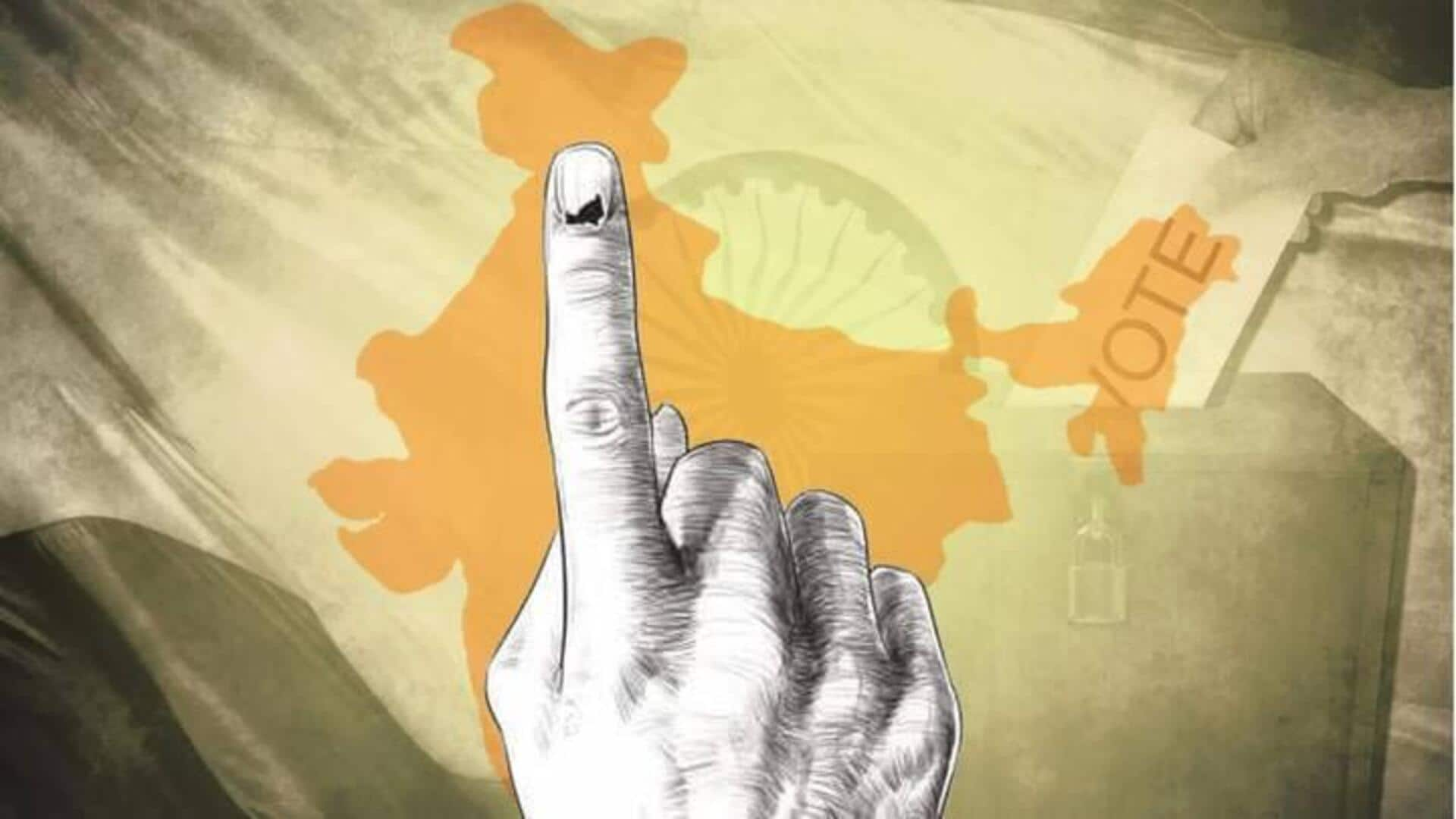
Why Lok Sabha polling takes around 6 weeks in India
What's the story
Nearly 97 crore people are eligible to vote in the Lok Sabha elections, which will begin on Friday. They will vote to elect 543 members to the 18th Lok Sabha. The election will determine whether Prime Minister Narendra Modi secures a third consecutive term in office. Challenging the Modi government is a huge but shaky coalition of opposition parties known as the Indian National Developmental Inclusive Alliance (INDIA). Here, we try to understand why the election takes so long.
Duration
The intricacies of India's extended election timeline
The extended election timeline in India is necessitated by the country's vast size and the complex logistics required to ensure every registered voter can participate. The voting duration has varied over time, with the inaugural elections post-independence in 1951-1952 taking nearly four months, while the 1980 elections were completed in just four days. The current election is the second longest since the 2019 election, which lasted for 39 days.
Demographics
India's electorate: A comparative perspective
Another major reason for the lengthy general election is the magnitude of the voting population. India's electorate, comprising 97 crore registered voters, surpasses the total population of all 27 European Union member states. The voting populace includes about 1.8 crore first-time voters and nearly two crore individuals in their twenties. The election process involves electing 543 lawmakers for the lower house of Parliament across seven phases, with each of India's 28 states and eight federal territories voting at different times.
Logistics
The Herculean task of ensuring voter accessibility
The Election Commission of India is tasked with ensuring a voting booth is within 2km of every voter. As Chakshu Roy from PRS Legislative Research, an independent think tank, stated, "Election officials have to travel to great lengths to ensure that even a single voter can exercise their franchise." To achieve this, approximately 1.5 crore election officials and security personnel traverse the country's diverse landscape, sometimes by boat, foot or horseback.
Security
Security measures in India's multiphase elections
Another reason is security, which experts believe is a key reason behind the multiphase election. Violence and vote manipulation have plagued India's election past, but there are far fewer cases now. Nonetheless, more than 300,000 federal security troops will support state-controlled police forces to ensure that the elections are free, fair, and devoid of fear. This strategy had successfully reduced election-related violence over the years, particularly in the eastern state of West Bengal, leading to relatively peaceful voting.